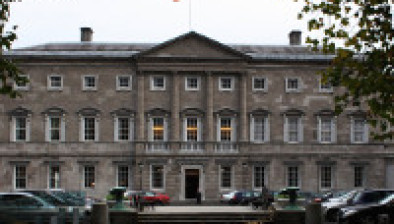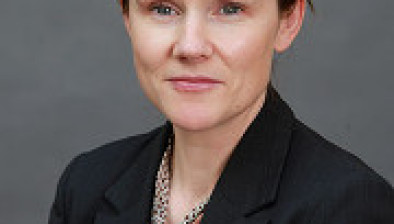High Court: State’s failure to provide material reception conditions to Afghan refugee was ‘completely unacceptable’

The High Court has ruled that the State failed to comply with its legal obligations to meet the basic needs of an Afghan refugee on his arrival to Ireland. The boy was under 18 years old when he came to Ireland but he had no documentation and was refused accommodation.

About this case:
- Citation:[2023] IEHC 187
- Judgment:
- Court:High Court
- Judge:Mr Justice Charles Meenan
Delivering judgment in the case, Mr Justice Charles Meenan held that the State failed to provide material reception conditions such as shelter, food and hygiene facilities. Instead, the boy was provided with a €28 voucher for Dunnes Stores and forced to sleep rough. The court stated that “this does not come remotely close to what is required by law”.
Background
The applicant was an Aghan national and stated that his birthday was in January 2006. In September 2022, his father was killed by the Taliban and he fled the country with the help of his family and a people smuggler. He travelled to Iran, Turkey, Bulgaria, Italy, France and England before arriving in Ireland on 7 February 2023.
The applicant applied for international protection in the State. He did not have any documents to prove his age and the social workers at the International Protection Office believed he was an adult. As such, the applicant was told that there was no accommodation available and he was provided with a €28 Dunnes Stores voucher to buy bedding. He was also directed to the Capuchin Day Centre.
The applicant slept rough between 7 and 28 February 2023. He had no food and was forced to beg. He was sometimes provided with food by other Afghan people who he met on the street.
The applicant felt he was constantly in danger and on one occasion was robbed by a drunk man who claimed to have a knife. He was unable to shower for the entire period as he had no access to hygiene facilities. He outlined how he was ashamed, humiliated and degraded by the experience.
Subsequently, the applicant obtained documents which proved that he was a minor. The IPO accepted the documentation but the Child and Family Agency had not provided a decision in an “age assessment” review.
On 24 February 2023, the applicant issued judicial review proceedings seeking various reliefs, but which mainly focused on requiring the State to comply with its legal obligations under the Reception Conditions Directive (Directive 2013/33/EU). The Directive (along with domestic regulations) outlined the standards for the reception of international protection applicants.
The State’s obligations under the Directive included providing an “adequate standard of living for applicants which guarantees their subsistence and protects their physical and mental health”. Material reception conditions were defined as including housing, food, daily expenses allowance and clothing.
Conveniently, the State sourced accommodation for the applicant on 28 February 2023. It was accepted that the Minister did not comply with his legal obligations regarding material reception conditions until that accommodation was provided.
The Minister outlined that the State faced very significant challenges to accommodate people such as the applicant, with a marked increase in international protection applications from previous years. It was also stated that the accommodation of nearly 70,000 Ukrainians had placed strain on the system. As such, the International Protection Accommodation Service was housing nearly 20,000 people compared with 8,500 in January 2022.
Having regard to the belated accommodation of the applicant, two issues arose in the hearing. First, the State submitted that the proceedings had become moot. Second, the State argued that the declarations sought by the applicant were unnecessary in light of the Minister’s acceptance that he had not complied with his legal obligations.
High Court
Mr Justice Meenan began by holding that the proceedings were not moot. The present case was a lead case, with many other applicants taking cases against the State but who had not received accommodation to which they were entitled. If the present case was defeated on the grounds of mootness, it would defeat the purpose of having a lead case, the court said.
The court held that although the issue of accommodation had been resolved in the case, the standard of material reception conditions remained live in other cases. Applying the well-established principles relating to mootness, the court held that the declarations sought by the applicant passed the threshold test and the proceedings could be heard (see Lofinmakin v. Minister for Justice [2013] 4 I.R. 272; M.C. v. the Clinical Director of the Central Mental Hospital [2021] 2 I.R. 166).
It was held that the court had a discretion to refuse a declaration in a variety of circumstances, which included where the declaration would serve no useful purpose, whether the applicant had achieved the substantial result without any order, where a public body had shown it was doing all it could to comply with a statutory duty or where an error had been substantially cured (see PMcD v Governor of X Prison [2021] IESC 65).
Mr Justice Meenan held that the applicant was seeking to enforce his basic rights and there was nothing “academic or theoretical” about this. The issue was “real and substantial”, the court said.
The court also referred to ECJ case law which outlined that even if accommodation facilities were overloaded, alternative steps should be taken by the State. These steps could include financial allowances or referring applicants to bodies within the general public assistance system (see Case C-79/30 Saciri).
Further, Article 1 of the EU Charter provided for the inviolability of human dignity, which included a person not finding themselves in extreme material poverty that does not allow basic needs to be met (see Case C-233/80 Haqbin). Having regard to the facts and admissions in the case, the court held that the Minister was in breach of his obligations under the Regulations and the Charter of Fundamental Rights of the EU.
The provision of a €28 voucher to the applicant did not come “remotely close to what is required by law” and directing the applicant to private charities was “completely unacceptable”.
Conclusion
Accordingly, the court granted declarations that the Minister’s failure to provide the applicant with material reception conditions was unlawful and in breach of his Charter Rights.
S.Y. (A Minor) v. The Minister for Children and Ors. [2023] IEHC 187









